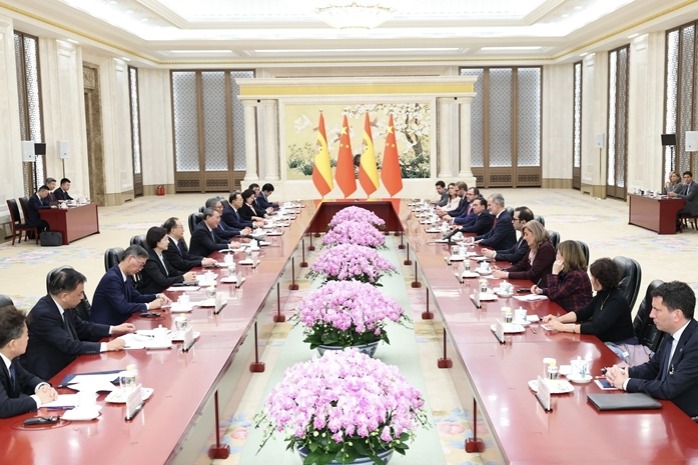Authorities clarify claims of zhongkao abolishment

Education authorities in Shanghai and Chengdu, capital of Sichuan province, have clarified recent online claims suggesting that the high school entrance exam, or zhongkao, would be abolished in some pilot programs.
They said the new educational reforms focus on integrated training models combining middle school with high school and do not equate to canceling the zhongkao, a crucial academic assessment.
In Chengdu, the education bureau announced recently that starting in 2025, a 12-year coherent training program will be introduced in eight selected pilot schools. Under the program, students enrolled in specific continuous education classes may proceed without taking the zhongkao, though they retain the option to exit the program and take the exam if desired.
The bureau emphasized that the pilot is limited in scope — only eight schools are involved — and is not a citywide cancellation of the zhongkao. The reform is designed to build a consistent educational pathway from primary through high school, shifting the emphasis from exam scores to holistic development.
Similarly, the Shanghai Municipal Education Commission responded to public inquiries regarding its newly released plan for improving high school education quality, which also includes piloting a longer-term coherent training model.
The commission explained that the approach aims to unify curriculum design and optimize resource sharing across different school stages, but it does not signal the abolishment of the zhongkao. Facing fluctuating waves of secondary school-age populations, the city aims to optimize resource allocation by developing integrated secondary schools that combine middle schools with high schools, the commission said in a statement recently.
This flexible approach helps manage enrollment fluctuations while promoting cross-campus sharing of facilities such as labs, libraries and specialized courses, making educational resources more efficient and adaptable, it said.
Abolishing the zhongkao has long been a demand among some parents who fear their children would be forced to enter vocational schools if they do not perform well on the exam.
Public concerns about the diversion between mainstream and vocational education mainly stem from the perception that students have limited prospects once they enter vocational schools. There has long been a stigma attached to vocational education, often labeled as "inferior education" or "education for those eliminated from the academic track".
However, education authorities have reiterated that they will not abolish the exam and that vocational education remains an important part of the overall education system.
In 2022, Chen Ziji, then director of the Department of Vocational and Adult Education at the Ministry of Education, said the diversion of students into vocational and regular schools is necessary, as vocational education plays a vital role in diversifying higher secondary education.
It offers varied pathways for students with different strengths and supports employment and regional development, he said. The ministry is working to enhance the quality and appeal of vocational programs while promoting better integration between educational tracks, he added.
Xiong Bingqi, president of the 21st Century Education Research Institute, said the public's anticipation for abolishing the zhongkao is understandable, but it requires establishing a more balanced high school education system first.
The revised Vocational Education Law of 2022 defined vocational education as a parallel type rather than a lower-level pathway of regular education, calling for greater integration between the two types, he added.
- Authorities clarify claims of zhongkao abolishment
- China's largest amphibious assault ship begins first sea trial
- Motherhood means you see world through child's eyes
- Finding my self-worth in being a full-time mom
- Judges weigh leniency and toughness in juvenile cases
- Flexible working means more time to be a parent




































